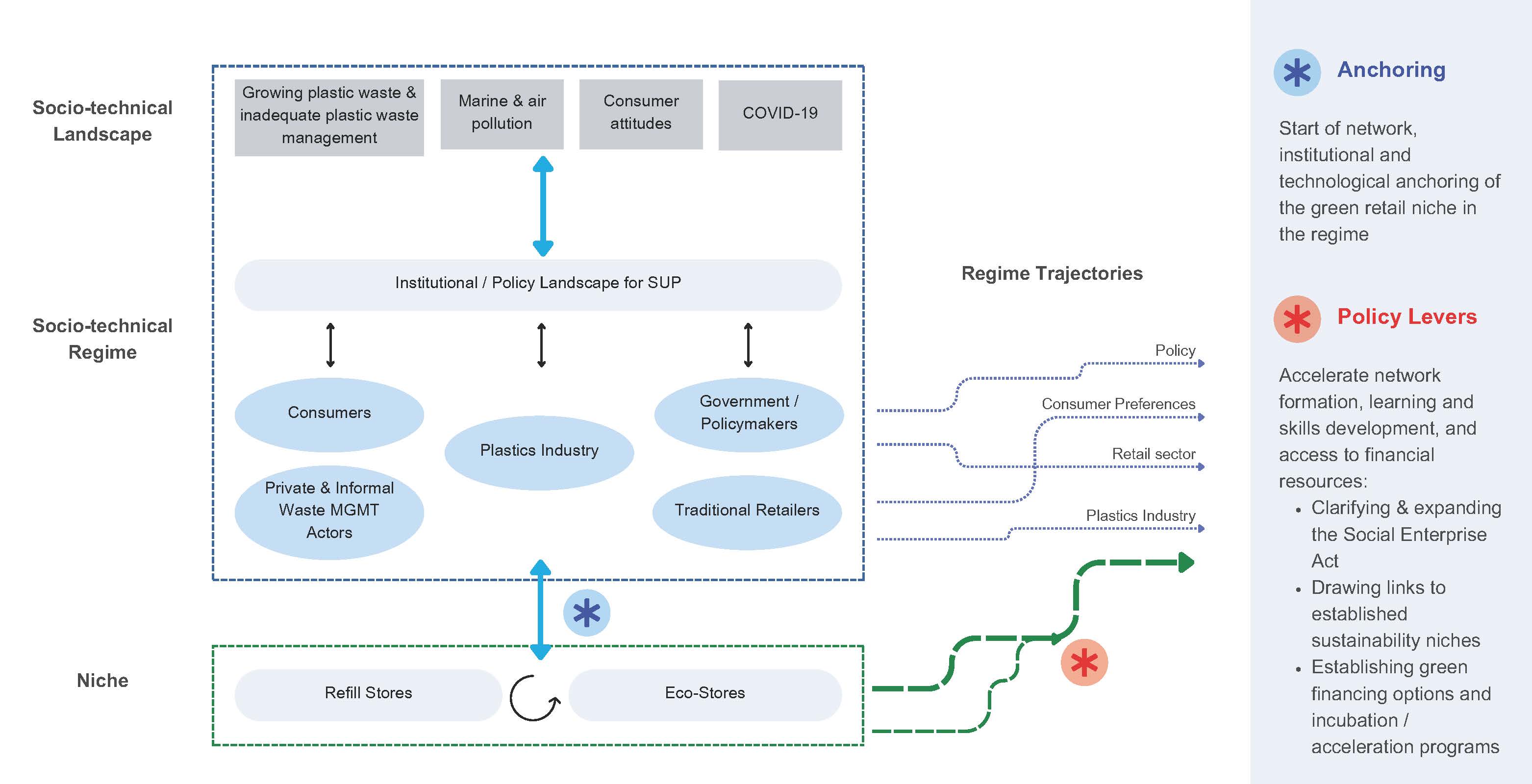Green Retail Development for Plastic Waste Prevention – Regime Trajectories and Levers for Change in Thailand’s Socio-technical System of Single-use Plastics
Main Article Content
Abstract
Thailand faces significant plastic waste management challenges. Around 2018-2019, a growing number of green retail shops started emerging in Thailand, offering products and services that eliminate or reduce the consumption of single-use plastics (SUPs). This paper intends to explore green retail as a niche in the Thai socio-technical system of SUPs. It aims to understand the socio-technical system’s current state, identify niche dynamics and momentum, illustrate key regime trajectories, and highlight policy levers. The study uses secondary data from academic articles and policy documentation, along with primary data from interviews with 20 Thai green retail founders conducted between 2020 and 2022, for thematic and content analysis. Findings suggest that the green retail niche has started establishing network, institutional and technological anchoring within the regime despite the disruptive impact of the COVID-19 crisis. Green retailers are committed to the development of their business models, but require support. The research suggests enhancing network formation and skills development within the niche, increasing access to financial resources, and establishing green financing options. It also suggests drawing links to more established niches and setting up incubation and acceleration programs for sustainability-minded small and medium enterprises (SMEs), thereby supporting their growth. Beyond the Thai context, this paper may be relevant for other countries and for evaluating sustainability niches in other sectors.
Article Details

This work is licensed under a Creative Commons Attribution-NonCommercial 4.0 International License.
Published articles are under the copyright of the Applied Environmental Research effective when the article is accepted for publication thus granting Applied Environmental Research all rights for the work so that both parties may be protected from the consequences of unauthorized use. Partially or totally publication of an article elsewhere is possible only after the consent from the editors.

